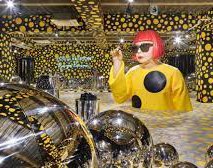Louis Vuitton’s recent bombshell appointment of Pharrell Williams as its new menswear creative director may have surprised some observers, but the move makes perfect sense as luxury brands are moving from merely selling products to becoming cultural influencers. (Source: Jing Daily)
Though cultural capital creation is the new savoir faire in luxury, what many brands underestimate is that building and wielding cultural influence requires a different skill set than that required to produce and sell goods.
Williams’ new role is an opportune moment to reflect on what luxury brands need to do to strongly engage with Gen-Z consumers. Three factors are crucial for success.
Authenticity
Gen-Z consumers are looking for brands that are authentic. They want to know the story behind the brand and its values. As one of the world’s most influential cultural ambassadors, Williams is going to be able to bring the brand closer to its emerging target audience. His style and music is extremely distinctive, and he’s carved out his own unique niche in the industries that he has touched over the past two decades. That longevity and authenticity counts. Williams further proved the sartorial allure of his star power when he created the cult brand Billionaires Boys Club with partner Nigo and another apparel brand Ice Cream Clothing.
Digital mastery and cultural clout
As Gen-Z is the first truly digital generation, luxury brands must have a strong digital presence, far beyond an e-commerce or social media presence. The name of the game is to create cultural capital through understanding and influencing audiences digitally. Most luxury brands are not yet in the position to fulfill that role.
Louis Vuitton will further extend its lead in this regard with Williams’ appointment. It’s now clear that Louis Vuitton is not positioning itself anymore as just a luxury brand, but rather as a cultural entity. The Louis Vuitton Foundation museum and art center in the outskirts of Paris all work towards a similar goal. The French maison’s much anticipated collaborations with world renowned artists such as Japan’s Yayoi Kusama also seek to leverage culture in cementing its leading place among luxury brands.
Experience
Gen-Z consumers value experiences over mere products, so luxury brands must create unique and memorable experiences for their consumers. This can be achieved through immersive events, collaborations with artists and designers, and personalized services. Luxury brands must also create a sense of exclusivity and scarcity, such as through limited edition products and VIP programs. As a performer, producer and multi-disciplinary musician Williams has proven over the last decade that he’s uniquely positioned to be such an experienced creator.
By focusing on these three criteria, luxury brands can successfully attract Gen-Z consumers and create value and desirability for their most influential clients. While some may bemoan Williams’ lack of technical design experience or fashion school credentials, when seen against a broader cultural backdrop, Williams’ appointment is a stroke of genius by Louis Vuitton.



